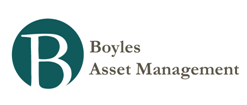Money and Finance
...
- If Investors Could Know Only One Thing About Greed And Fear...
From Seth Klarman: Fear of missing out, of course, is not fear at all but unbridled greed. The key is to hold your emotions in check with reason, something few are able to do. The markets are often a tease, falsely reinforcing one’s confidence as prices...
- Comments From Felix Zulauf, James Montier And David Iben
Link to: We will continue to swim in a sea of liquidityJames, we have slow growth, no inflation, low interest rates and easy monetary policy as far as the eye can see. Are we living in the best of all worlds for investors? James Montier: How...
- Howard Marks To Present At The 6th Annual Value Investing Congress West
Howard Marks, Chairman of Oaktree Capital Management, is scheduled as one of the presenters for the 6th Annual Value Investing Congress West that will take place on May 3 & 4 in Pasadena, California. Well known for his memos, Mr. Marks is also coming...
- John Mauldin's Outside The Box: Game Changer - By Ed Easterling
Investors are confronting the reality of the current secular bear market. It is both the consequence of the previous secular bull market and the precursor to the next secular bull. The duration of the current secular bear period is uncertain. Should inflation...
- The Limits To Negativism - By Howard Marks
The last few weeks witnessed the greatest panic I’ve ever seen, as measured by its severity, the range of assets affected, its worldwide scope and the negativity of the accompanying tales of doom. I’ve been through market crashes before, but none...
Money and Finance
Steven Romick's Q1 Commentary
Though the players involved may change from one generation to the next, investing at its core is, and always will be, nothing more than a tug of war between fear and greed. Fear summons the wanton selling of assets without regard to value, a scenario that often allows us to purchase assets from panicked sellers at a discount to intrinsic value. Conversely, greed creates reckless accumulation, also without regard to value, and makes it easier to find a buyer at prices higher than we paid to the frightened seller. Fear gives us an “in”, while greed gives us an “out”.
At the moment, the side pulling the “greed” end of the rope would seem to have the momentum, so as you can guess we have been feeding them some of our slack. Rest assured however, this is a tug of war that never ends, and while we don’t know when it will happen, “fear” will eventually turn the tide in the future, just as it has in the past. At that point we will rise each morning and put our well rested muscles to work by once again actively deploying capital.
...
Those who remain fully invested have made an implied bet that the world will tilt towards inflation. Although we find it hard to argue that point longer term, over shorter periods of time that may not prove true. Deflation might rule the day in the months to come, particularly if the Chinese economic engine begins to misfire. We frankly confess that we just don’t know if we’ll have inflation or deflation. And we also don’t know how much of either or when. We wish we could say otherwise. Those who believe that significantly higher levels of inflation are inevitable, and probably sooner rather than later, would be better served remaining fully invested in risk assets that will help protect against such vagaries that erode cash instruments. On the other hand, those who conclude that deflation will harm those very investments, would be better off keeping their portfolios safely liquid. We have chosen the middle, a lonely place that offers little conviction in either direction. We therefore maintain a Fund that we believe will not succeed terrifically well in either scenario, but may perform adequately in any scenario.
As stakeholders ourselves, we do to you as we do unto ourselves. Our continued commitment to our shareholders is that we will work for you as if we manage all of your savings-even though, we don’t think that’s prudent.
…………….
Related previous post: Steve Forbes interviews Steve Romick
- If Investors Could Know Only One Thing About Greed And Fear...
From Seth Klarman: Fear of missing out, of course, is not fear at all but unbridled greed. The key is to hold your emotions in check with reason, something few are able to do. The markets are often a tease, falsely reinforcing one’s confidence as prices...
- Comments From Felix Zulauf, James Montier And David Iben
Link to: We will continue to swim in a sea of liquidityJames, we have slow growth, no inflation, low interest rates and easy monetary policy as far as the eye can see. Are we living in the best of all worlds for investors? James Montier: How...
- Howard Marks To Present At The 6th Annual Value Investing Congress West
Howard Marks, Chairman of Oaktree Capital Management, is scheduled as one of the presenters for the 6th Annual Value Investing Congress West that will take place on May 3 & 4 in Pasadena, California. Well known for his memos, Mr. Marks is also coming...
- John Mauldin's Outside The Box: Game Changer - By Ed Easterling
Investors are confronting the reality of the current secular bear market. It is both the consequence of the previous secular bull market and the precursor to the next secular bull. The duration of the current secular bear period is uncertain. Should inflation...
- The Limits To Negativism - By Howard Marks
The last few weeks witnessed the greatest panic I’ve ever seen, as measured by its severity, the range of assets affected, its worldwide scope and the negativity of the accompanying tales of doom. I’ve been through market crashes before, but none...

